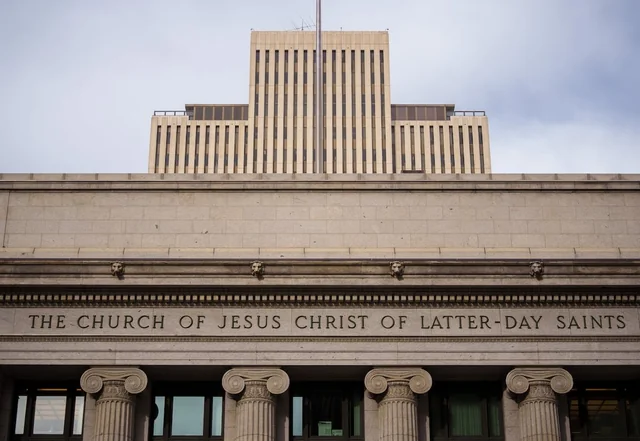SALT LAKE CITY — A federal judge on Thursday dismissed a proposed class-action lawsuit that sought to upend the financial practices of The Church of Jesus Christ of Latter-day Saints, firmly rejecting accusations of fraud and declining to entertain what the Church called a misguided and unfounded attack on its sacred tradition of tithing.
The decision by U.S. District Judge Robert Shelby brings a conclusive end to a lawsuit brought by nine individuals who had demanded sweeping interventions into the Church’s finances — including a freeze on the collection of tithes from millions of members worldwide. The plaintiffs had alleged that the Church improperly accumulated vast investment returns through its Salt Lake City-based investment firm, Ensign Peak Advisors, while failing to use those funds for charitable purposes.
Shelby, in a 44-page ruling, dismissed the case with prejudice, meaning it cannot be refiled. He wrote that the plaintiffs’ claims were not only inadequately argued but also filed too late under Utah’s three-year statute of limitations for fraud. Public allegations about the Church’s financial reserves, he noted, had emerged no later than early 2020, yet the lawsuit was not filed until October 2023 — nearly four years later.
“It ‘strains credulity’ that reasonably diligent individuals who had donated substantial sums of money to the church and were otherwise interested in church affairs” would not have been aware of those reports, Shelby wrote.
At the center of the suit was an effort to portray Ensign Peak’s investment holdings — reported by whistleblower David Nielsen to exceed $100 billion — as a so-called “slush fund.” Plaintiffs claimed that rather than spending those returns on charitable work, Church leaders instead used the funds to stabilize a Church-owned insurance company, Beneficial Life, and help finance the development of City Creek Center, a retail complex near Temple Square.
But the judge did not find the claims met legal standards for fraud, and he rejected the plaintiffs’ attempt to force a judicial audit of the Church’s finances or to place its funds under court supervision.
Most strikingly, the plaintiffs had urged the court to go so far as to freeze the Church’s ability to collect tithes altogether — an extraordinary measure that would have directly interfered with one of the faith’s core religious practices. Church members voluntarily contribute ten percent of their income as an expression of devotion and faith.
The Church, which does not publicly detail its financial operations, has repeatedly emphasized that tithing funds are “carefully used and wisely managed, under the direction of senior Church leaders,” supporting missionary efforts, education, welfare programs, and the global construction of temples and meetinghouses.
Following the ruling, Church spokesperson Sam Penrod issued a statement reaffirming the spiritual nature of tithing. “Tithing donations made by members of The Church of Jesus Christ of Latter-day Saints are an expression of faith and allow the Church to fulfill its divine mission,” he said. “The legal claims brought against the Church were rightfully dismissed by the court.”
Ensign Peak, founded in 1997, has only twice drawn from its reserve fund, according to the lawsuits. In 2009, it allocated $600 million to support Beneficial Life, and between 2010 and 2014, it contributed $1.4 billion to the City Creek development. Both uses, Church officials have indicated, were aimed at preserving the Church’s long-term financial stability and operational self-reliance.
The plaintiffs’ case leaned heavily on allegations from Nielsen, a former Ensign Peak manager whose claims — widely reported beginning in 2019 — formed what the judge called “the genesis” of the suit. However, those claims, while generating public scrutiny, have not led to any court finding of fraud.
In a separate matter, the U.S. Securities and Exchange Commission in 2023 fined the Church and Ensign Peak a combined $5 million for improperly structuring disclosures about its investment portfolio. The Church cooperated with the investigation and promptly resolved the matter.
This latest dismissal follows a similar ruling in January by the 9th U.S. Circuit Court of Appeals, which rejected a fraud suit brought by James Huntsman, brother of former Utah Governor Jon Huntsman Jr., seeking a return of $5 million in donations.
By grounding his ruling in procedural law and declining to entertain speculative and retrospective arguments, Judge Shelby reinforced a key legal principle: that religious institutions are entitled to govern their internal financial affairs without interference, so long as civil laws are respected.
For the Church and its members, the court’s decision appears to affirm what they have long maintained — that tithing is not only a sacred obligation, but a trust fulfilled with care, discipline, and purpose.
Latest posts by Moroni Channel News (see all)
- Norway to host International Young Single Adult (YSA) Conference - April 19, 2025
- Youth from Across Asia to Gather in Bangkok for 2025 Latter-day Saint FSY Conference - April 19, 2025
- Asia’s Youth Prepare for Regionwide FSY Conference in Bangkok - April 19, 2025
- Bangkok to Host 2025 FSY Conference for Youth from Mainland China, Taiwan, Hong Kong, and Macau - April 19, 2025


